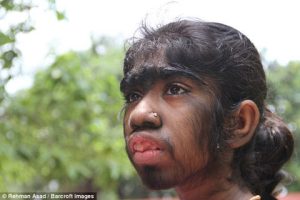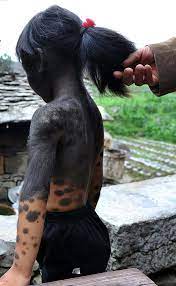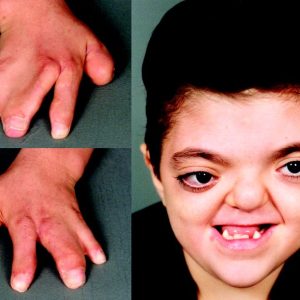Excessive hair growth, a condition known as hirsutism or hypertrichosis, can be a source of profound distress for those affected, impacting their physical appearance, mental health, and social interactions. Across the globe, individuals grappling with this condition face unique challenges and struggles, often leading to tragic tales of hardship and suffering.

In societies where rigid beauty standards prevail, individuals with excessive hair growth find themselves at odds with societal norms, facing discrimination, ridicule, and ostracism. Women, in particular, may feel pressured to conform to unrealistic standards of femininity, leading to feelings of inadequacy and low self-esteem. For many, the relentless growth of unwanted hair becomes a constant source of embarrassment and shame, casting a shadow over their sense of self-worth and identity.

In addition to the emotional toll, excessive hair growth can also have practical implications, affecting employment opportunities, romantic relationships, and social interactions. Many individuals resort to extreme measures to conceal their condition, including frequent shaving, waxing, or even resorting to painful and expensive treatments such as laser therapy or electrolysis. Despite their efforts, the burden of managing excessive hair growth remains a constant struggle, impacting every aspect of their daily lives.

Tragically, the lack of understanding and empathy from others only serves to exacerbate the suffering of those with excessive hair growth. Instead of receiving support and compassion, they are often met with ignorance, prejudice, and cruelty. This societal stigma further isolates them, making it difficult to seek help or find acceptance within their communities.

Moreover, access to comprehensive medical care and support services remains a significant challenge for many individuals with excessive hair growth, particularly in underserved communities. Limited healthcare resources, financial constraints, and social barriers prevent them from accessing the treatment and support they desperately need, perpetuating their sense of hopelessness and despair.
In the face of such adversity, it is essential to recognize the humanity and dignity of those affected by excessive hair growth. By fostering a culture of empathy, acceptance, and inclusivity, we can create a more compassionate society where individuals are valued for their intrinsic worth, rather than judged by their physical appearance. Together, we can rewrite the tragic tales of excessive hair growth, offering hope, support, and solidarity to those in need.









